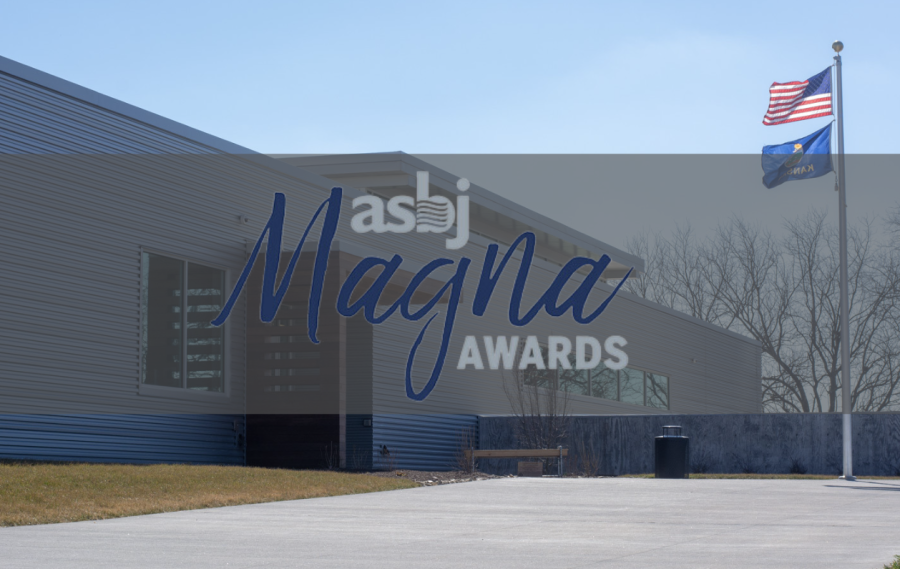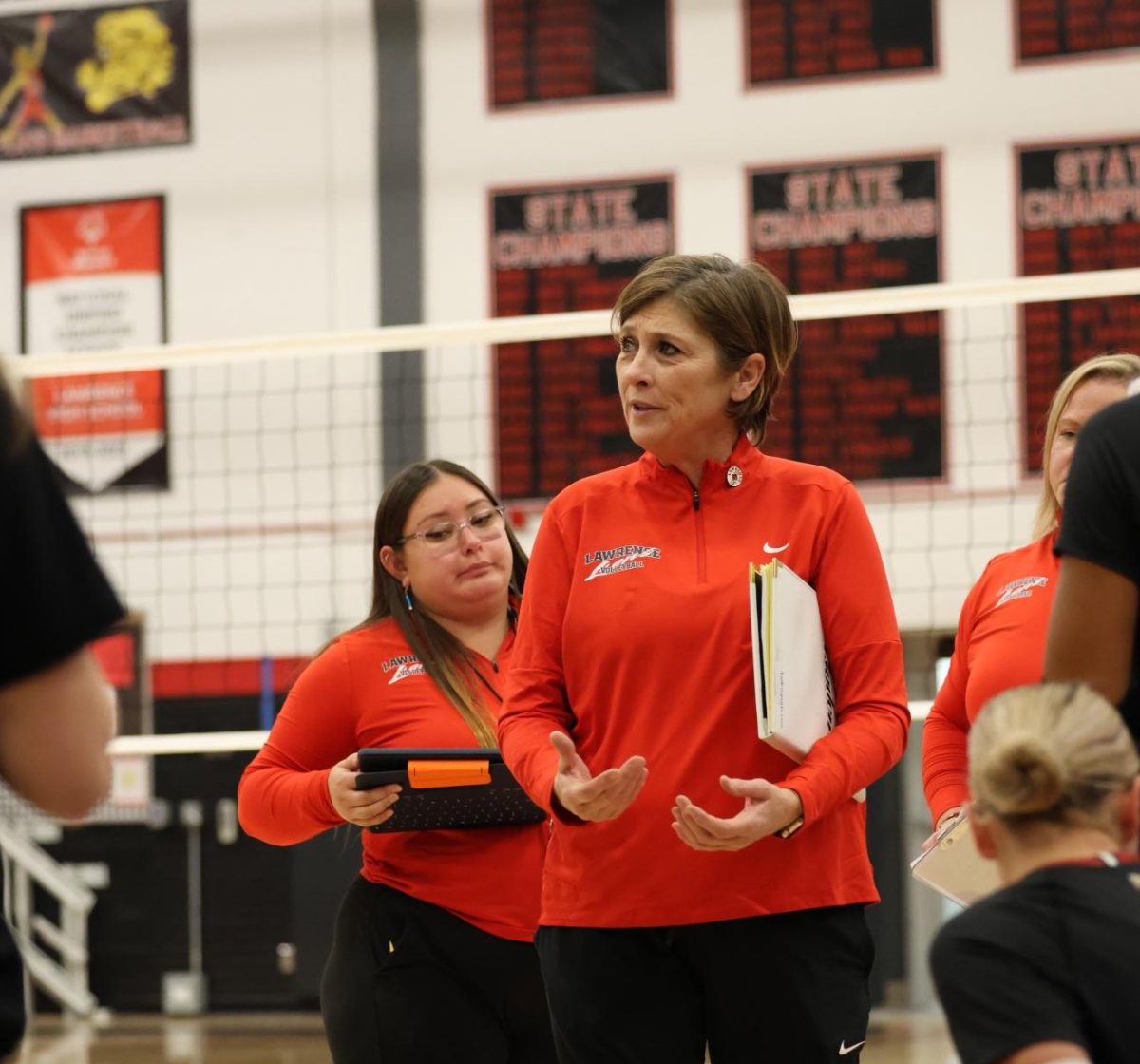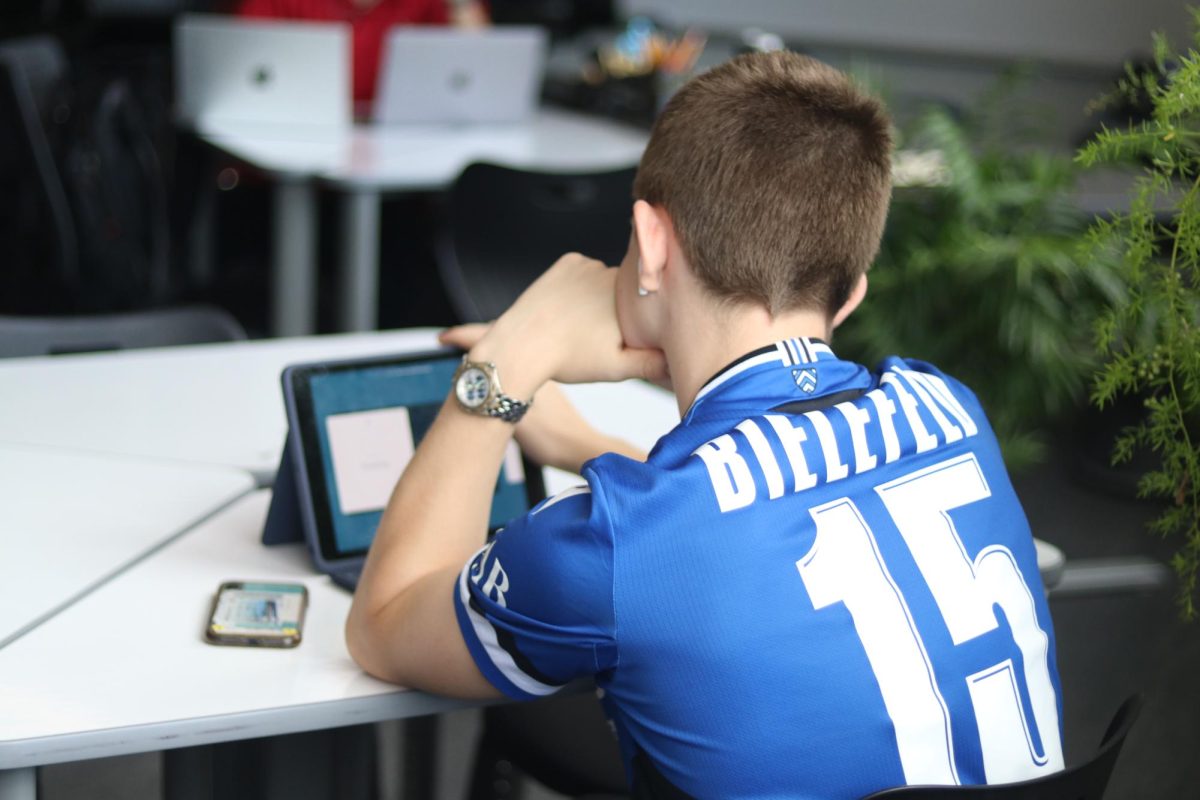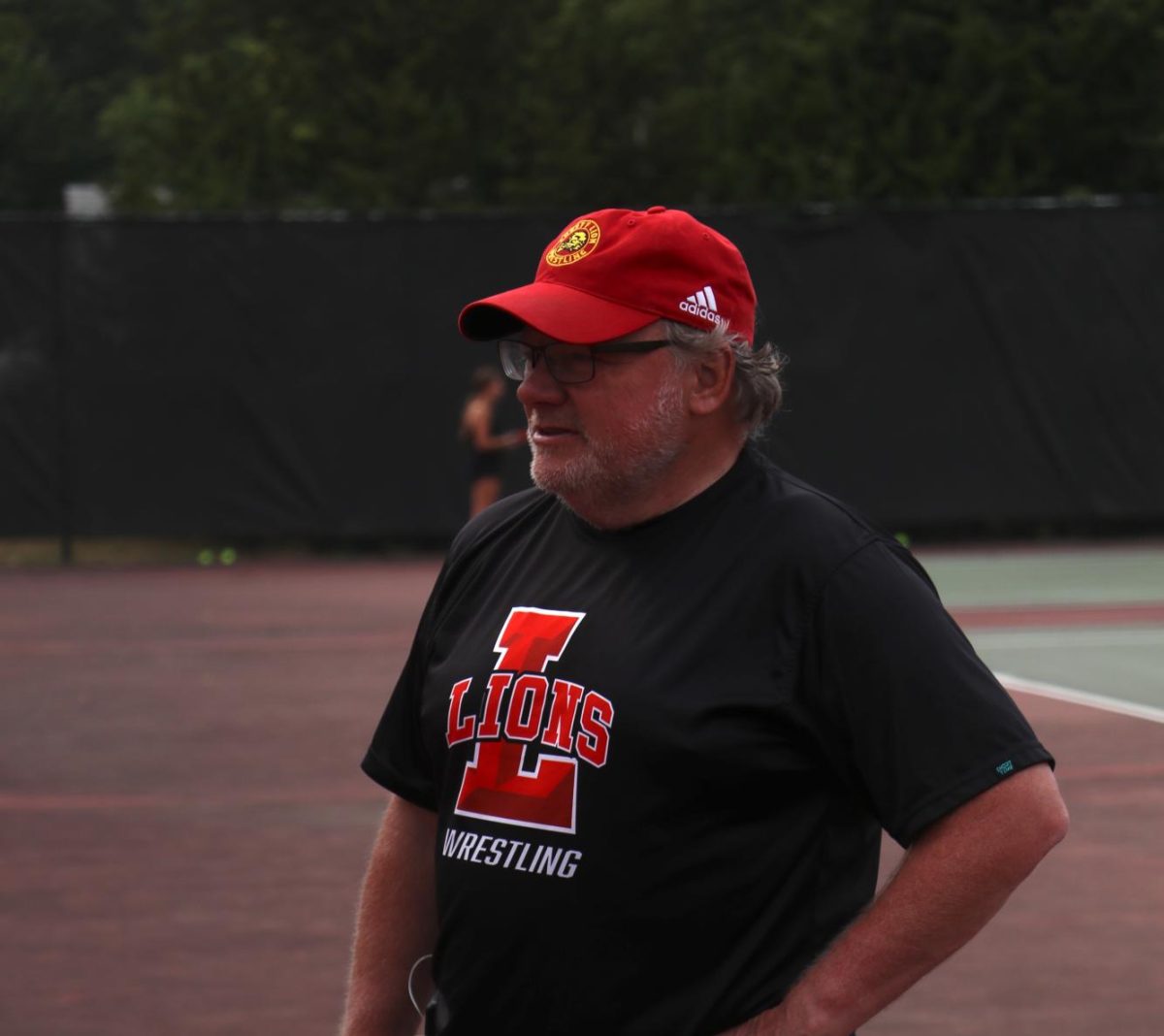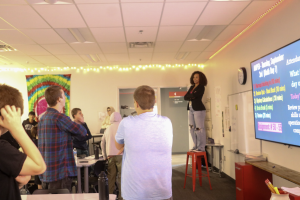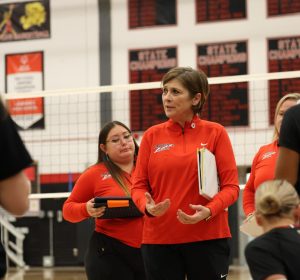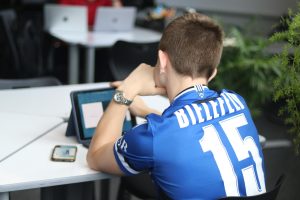College and Career Academy earns national recognition
The Lawrence College and Career Academy received the ASBJ Magna Grand Prize for excellence and innovation
March 30, 2023
This February, the Lawrence College and Career Academy became one of three schools in the country to win the Magna Grand Prize for innovation from the National School Board Association. The Magna Awards, sponsored by the American School Board Journal, acknowledge school district programs for their innovation and creativity in responding to their district’s issues.
The CCC Academy concentrates on teaching different methods of self-sustainability and social-emotional skills to students, as well as preparing them for various career paths and fulfilling their graduation requirements. As Principal Bill Dewitt explains, the academy was created to help serve kids who had faced debilitating circumstances.
“If you fall behind on credits, if you start missing class, it is very difficult to get caught back up. And we felt like we were losing kids that we could keep if we could do something different,” Dewitt said. “We really wanted to turn the focus back into the students and kind of give the students a little more choice.”
By taking a step back from the punitive system, Dewitt says they were able to create environments more accessible to kids from a multitude of backgrounds.
“Maybe they’re just kind of lost their path, or it’s not clear. Maybe they had a family incident, maybe school wasn’t for them,” Dewitt said. “A little more control over their learning, a little more understanding of what their needs are, and then put them in an environment where we can kinda let them find their own guidance.”
When Dewitt learned that the Academy had won the Magna Grand prize, he was flooded with a combination of shock, excitement, and gratitude.
“I was so proud for some of these families because it’s been a lot of work over the last three years,” Dewitt said.
To academy teacher Sarah Mahoney, the recognition of the innovation of the Academy was welcomed but felt it only scratched the surface of exhibiting the full value of the academy to the district and its students.
“While the word innovation might imply something new or unique has occurred, to me it can also mean simply doing something that is often overlooked or not happening with fidelity,” Mahoney said. “Even when schools, districts, or systems claim to be prioritizing things like social-emotional learning, equity, and restorative practices if they’re not taking action with consistency, I don’t think that they can boast them as priorities.”
To Mahoney, prioritizing student well-being overall has brought huge success to the Academy, rather than solely concentrating on academic results.
“The Academy applies restorative practices in a way that really does its best to keep students in the building and classrooms so that they have the best chance to get the most out of their time with us each day,” Mahoney said.
By avoiding ego-driven cycles of leveraging power, Mahoney and other Academy educators find more benevolent ways to find results.
“I’m living by the tenet ‘compassion over compliance,’” Mahoney said.
Bill Dewitt said, one of the ways the Academy has employed unique strategies to their students’ benefit is by providing access to post-secondary education resources and specialized career-path education.
“We [have] tied it into our CT program, so every kid that comes to the academy has to be in one of our pathways,” Dewitt said. “Academy kids can get career pathway development in addition to getting their core content.”
Lawrence High senior Atticus Dunlap says the value of the skills acquired in CT classes is beyond measure. Dunlap is a student in the auto shop class where students are taught how to repair vehicles and apply hands-on learning skills through working on cars.
“We’re all learning cool stuff about how to change tires, how to change oil, how to rotate brakes, how to add brake cables,” Dunlap said. “it’s a really fun experience,”
Dunlap says the class is useful for any student as it educates them about self-sustainability and being prepared for real-world scenarios.
“If your tire breaks down on the highway, you don’t know what to do. And hopefully, if you have the tools, you’ll be able to do it,” Dunlap said. “It’s great for academy kids.”
The value of the Academy also comes from establishing important positive connections with students. To Mahoney, building positive relationships with Academy students has been central to the work done by staff.
“It’s always better if we can position ourselves in a way to be responsive rather than reactive in situations, so if a student shares that they have difficulty with time management or organization,” Mahoney said.
Mahoney will often ask questions to create bonds with the students over personal interests to help initiate an effective approach to their learning.
“I find that when you provide students the space to share about themselves, they will tell you some really important information,” Mahoney said.
Mahoney emphasized the importance of recognizing the entire college and career staff for the achievement. To her, their work is the reason the Academy has been recognized, not the decisions of the school board.
“We’re extremely supportive of one another, communicating frequently throughout the day, and stepping in to fill gaps within our building as needed, which makes it possible for us to better support and model collaborative relationships for our students,” she said.
“I really value our team and give much credit to all of us for the success of the program and the impact that it has had on our students, families, and district,” Mahoney said.



